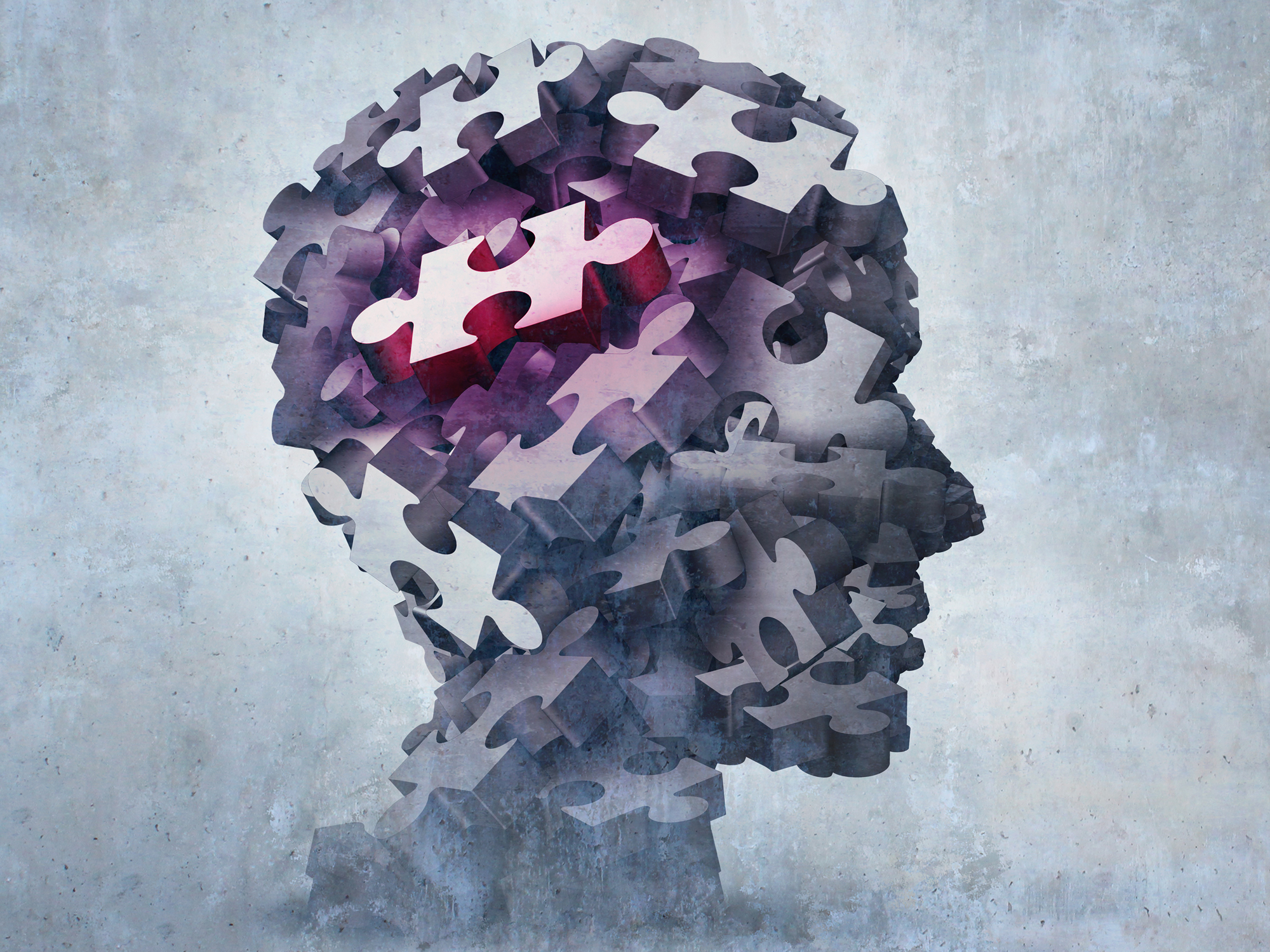Get Easy Health Digest™ in your inbox and don’t miss a thing when you subscribe today. Plus, get the free bonus report, Mother Nature’s Tips, Tricks and Remedies for Cholesterol, Blood Pressure & Blood Sugar as my way of saying welcome to the community!
How nourishing the brain could heal mental illness

Nutrition impacts physical health. You know it. I know it. And your doctor knows it.
He or she may still recommend drugs more often than diet changes. But you’d be hard pressed to find a doctor who won’t admit that nutrition plays a role in disease risk. The science is just too strong.
But do you know what’s harder for a lot of people to swallow — especially doctors? The fact that nutrition plays a role in mental health, too.
As far as conventional medicine’s concerned, nutrition and mental illness have nothing to do with one another. So if a psychiatrist or psychologist started recommending nutritional changes to treat or prevent mental health problems, it would be pretty dang controversial.
But controversial or not, it’s time to realize there may be a better answer for the millions suffering from mental illness…
Flipping the future of mental illness
There aren’t as many studies connecting mental health to nutrition as there are connecting physical health to nutrition, but the body of research is growing quickly.
In fact, research even shows that certain nutrients could treat people with serious mental illnesses better than the prescription meds we use now.
At the forefront of this “crazy” idea is Julia Rucklidge, a clinical psychology professor and researcher from the University of Canterbury in Christchurch, New Zealand, who’s trying to change the way people think about nutrition and mental illness.
Julia gave a talk at a Tedx event on this very topic in 2014 (FYI… a Tedx event is a local, independently organized event that’s inspired by the TED Conferences).
[youtube https://www.youtube.com/watch?v=3dqXHHCc5lA]
In her talk, Julia mentioned some jaw-dropping statistics about mental illness and treatment methods. For example, did you know that…
- The number of children who have ADHD internationally tripled in five years?
- Or that autism rates in children have increased 20 fold?
- Or that the number of children with bipolar disorder is 40 times higher?
These are just a few of the doozies Julia shared, but there’s more…
Why more drugs aren’t the answer
The number of people taking psychiatric medication is also rising rapidly. Between 2011 and 2013, the number of Americans taking psychiatric medications rose from one in 10 to one in six.
But if more and more people are taking medication to treat their mental illness shouldn’t mental illness rates be going down? Shouldn’t at least some of these people be getting better?
Well, as Julia mentions in her talk, that’s what you’d hope. People get sick. They get treatment. And then they get better. But that’s far from the reality…
The reality is that people who take antipsychotics, anti-anxiety medications and antidepressants often do worse in the long-term than people with the same mental illnesses who don’t take these medications…
- Studies show that depression recovery and relapse rates are the same as they were 50 years ago… even though millions of people take antidepressants that weren’t available 50 years ago.
- Depressed children who take antidepressants triple their risk of eventually developing bipolar disorder.
- And people who take antipsychotic medications don’t fare much better. Those who stay on the same dose of antipsychotics to treat their schizophrenia are less likely to recover than those who gradually reduce their dosage or stop taking the drugs completely.
Of course, there are times when psychiatric medication is necessary. As someone who has family members with mental illness, I know these drugs can save lives… and Julia wholeheartedly agrees.
The problem is these medications are quick fixes rather than long-term solutions. They can help when a mental health emergency arises, but they shouldn’t be the crux of every mental health recovery plan.
An answer that works for the long haul
So what is a long-term solution for mental illness? Well, based on some of the research Julia’s done, it could be nutrition.
In one study, Julia found that micronutrients (AKA vitamins and minerals) could successfully treat adults with ADHD.
In fact, twice as many people who took high doses of certain micronutrients reduced their ADHD symptoms compared to people who took the placebo. Their depression went into remission, and their hyperactivity and impulsivity fell into the normal range. When researchers followed up with the micronutrient group one year later, they were still doing well. Some got even better as the year went on. But those who went back on medication during that year got worse again.
Another study she performed showed that a month of micronutrient therapy could lower rates of PTSD in people who’d experienced an earthquake by 47 percent. One year after the study, people who took those micronutrients for a month were still happier and better adjusted than people who didn’t take them.
How is this possible?
A well-nourished brain is a resilient brain
According to Julia, nourishing your brain makes it more resilient. And that means less mental illness. She says that people who undergo micronutrient therapy not only see improvements in their clinical conditions but in other cognitive areas too…
They sleep better, have a more stable mood, feel less anxious and are less likely to use addictive substances.
All in all, the research from Julia and other researchers shows that 60 to 80 percent of people respond to micronutrients for mental health issues. Even more exciting, Julia says that randomized placebo-controlled clinical trials show that micronutrients have the potential to treat:
- Aggression in prisoners
- Cognitive decline in older adults
- Depression
- Stress
- Anxiety
- Autism
- ADHD
Studies even show that micronutrients could help treat and prevent serious mental issues like psychosis.
Using micronutrients for mental illness
Now, there’s a very important point Julia mentions in her talk…
Healing mental illness requires more than just eating healthy. For many people, it takes unusually high doses of a long list of micronutrients to overcome a serious mental health condition. So there’s more to this treatment than just eating salad every day.
That’s not to say that eating healthy won’t help. Research shows that people who eat fresh, nutritious diets are happier, healthier, less anxious and less depressed than people who eat processed Western diets.
But if you want to use nutrition to improve your mental health, here’s my advice…
Find an expert who can guide you. Whether that’s a naturopathic doctor, a dietitian or a nutritional psychologist (yes, those exist!). You need a trained professional to teach you how to use micronutrients and diet changes for your particular issue.
One last piece of advice…
Don’t go off your medication without support and guidance from a health professional. Mental illnesses are serious. And so are the medications used to treat them. They’re not something to approach cavalierly. That doesn’t mean you can’t explore alternatives. Just do it safely.
Editor’s note: While you’re doing all the right things to protect your brain as you age, make sure you don’t make the mistake 38 million Americans do every day — by taking a drug that robs them of an essential brain nutrient! Click here to discover the truth about the Cholesterol Super-Brain!
Sources:
- 1 in 6 Americans Takes a Psychiatric Drug — Scientific American. Retrieved March 22, 2018















